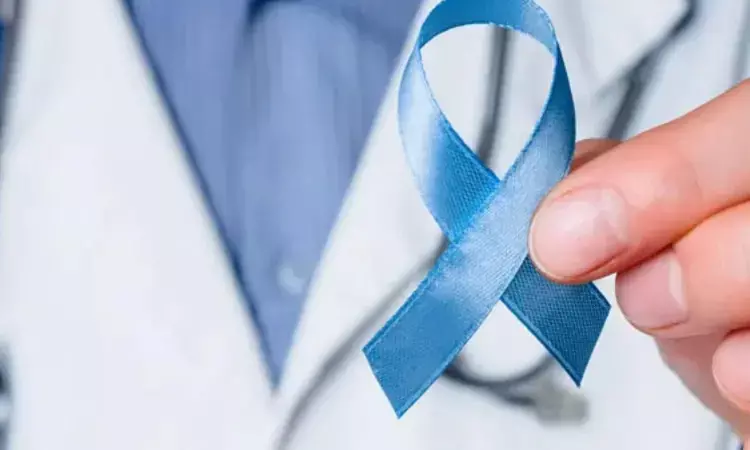- Home
- Medical news & Guidelines
- Anesthesiology
- Cardiology and CTVS
- Critical Care
- Dentistry
- Dermatology
- Diabetes and Endocrinology
- ENT
- Gastroenterology
- Medicine
- Nephrology
- Neurology
- Obstretics-Gynaecology
- Oncology
- Ophthalmology
- Orthopaedics
- Pediatrics-Neonatology
- Psychiatry
- Pulmonology
- Radiology
- Surgery
- Urology
- Laboratory Medicine
- Diet
- Nursing
- Paramedical
- Physiotherapy
- Health news
- Fact Check
- Bone Health Fact Check
- Brain Health Fact Check
- Cancer Related Fact Check
- Child Care Fact Check
- Dental and oral health fact check
- Diabetes and metabolic health fact check
- Diet and Nutrition Fact Check
- Eye and ENT Care Fact Check
- Fitness fact check
- Gut health fact check
- Heart health fact check
- Kidney health fact check
- Medical education fact check
- Men's health fact check
- Respiratory fact check
- Skin and hair care fact check
- Vaccine and Immunization fact check
- Women's health fact check
- AYUSH
- State News
- Andaman and Nicobar Islands
- Andhra Pradesh
- Arunachal Pradesh
- Assam
- Bihar
- Chandigarh
- Chattisgarh
- Dadra and Nagar Haveli
- Daman and Diu
- Delhi
- Goa
- Gujarat
- Haryana
- Himachal Pradesh
- Jammu & Kashmir
- Jharkhand
- Karnataka
- Kerala
- Ladakh
- Lakshadweep
- Madhya Pradesh
- Maharashtra
- Manipur
- Meghalaya
- Mizoram
- Nagaland
- Odisha
- Puducherry
- Punjab
- Rajasthan
- Sikkim
- Tamil Nadu
- Telangana
- Tripura
- Uttar Pradesh
- Uttrakhand
- West Bengal
- Medical Education
- Industry
Dietary changes decreasing cholesterol levels reduce PSA and predict prostate cancer risk

Canada: In a new study conducted by Viranda H. Jayalath and colleagues, it was shown that dietary changes that decrease blood cholesterol also dramatically lowers serum prostate-specific antigen (PSA) and predicted prostate cancer (PCa) risk.
The findings of this study were published in the Canadian Urological Association Journal.
Statins appear to work through both cholesterol-dependent and independent pathways to reduce blood prostate-specific antigens and enhance prostate cancer outcomes. Although dietary changes have a proven effect on lowering blood cholesterol, it's unknown if they will have the same positive effects on PCa as statins. Therefore, the purpose of this study was to determine how diet-driven cholesterol reduction affected blood PSA and estimated PCa risk.
Six published randomized controlled studies of dietary treatments involving a total of 291 men were considered. Men were over 40 years old, PCa-free, and had a baseline PSA of less than 10.0 ng/mL. For eight to twenty-four weeks, participants followed one of four diets: high-fiber, low-glycemic index, low-glycemic load, or cholesterol-lowering. The main finding assessed the relationship between PSA and changes from baseline in low-density lipoprotein cholesterol (LDL-C). The Prostate Cancer Prevention Trial (PCPT) risk calculator (restricted to age ≥55 years, baseline PSA ≥1.0 ng/mL) was used to calculate how cholesterol-lowering altered PCa risk.
The key findings of this study were as follows:
1. LDL-C was 90 mg/dL and PSA was 0.90 ng/mL at baseline.
2. According to multivariate analysis, PSA fell by 1.9% for every 10% drop in LDL-C.
3. Men whose baseline PSA was lower than 2.0 ng/mL saw more regression.
4. Statin-comparable LDL-C reductions (15%) decreased PSA by 12% and estimated PCa risk by 6.5% in men with estimable PCPT risk.
In conclusion, this study is the first to demonstrate a link between improved food quality and lower PSA readings. Patients need to be aware of this potentially modifiable risk factor, but further study is needed to assess its influence on prostate cancer risk.
Reference:
Jayalath, V. H., Lajkosz, K., Fleshner, N. E., Hamilton, R. J., & Jenkins, D. J. A. (2022). The effect of lowering cholesterol through diet on serum prostate-specific antigen levels: A secondary analysis of clinical trials. In Canadian Urological Association Journal (Vol. 16, Issue 8, pp. 279–282). Canadian Urological Association Journal. https://doi.org/10.5489/cuaj.7975
Neuroscience Masters graduate
Jacinthlyn Sylvia, a Neuroscience Master's graduate from Chennai has worked extensively in deciphering the neurobiology of cognition and motor control in aging. She also has spread-out exposure to Neurosurgery from her Bachelor’s. She is currently involved in active Neuro-Oncology research. She is an upcoming neuroscientist with a fiery passion for writing. Her news cover at Medical Dialogues feature recent discoveries and updates from the healthcare and biomedical research fields. She can be reached at editorial@medicaldialogues.in
Dr Kamal Kant Kohli-MBBS, DTCD- a chest specialist with more than 30 years of practice and a flair for writing clinical articles, Dr Kamal Kant Kohli joined Medical Dialogues as a Chief Editor of Medical News. Besides writing articles, as an editor, he proofreads and verifies all the medical content published on Medical Dialogues including those coming from journals, studies,medical conferences,guidelines etc. Email: drkohli@medicaldialogues.in. Contact no. 011-43720751


